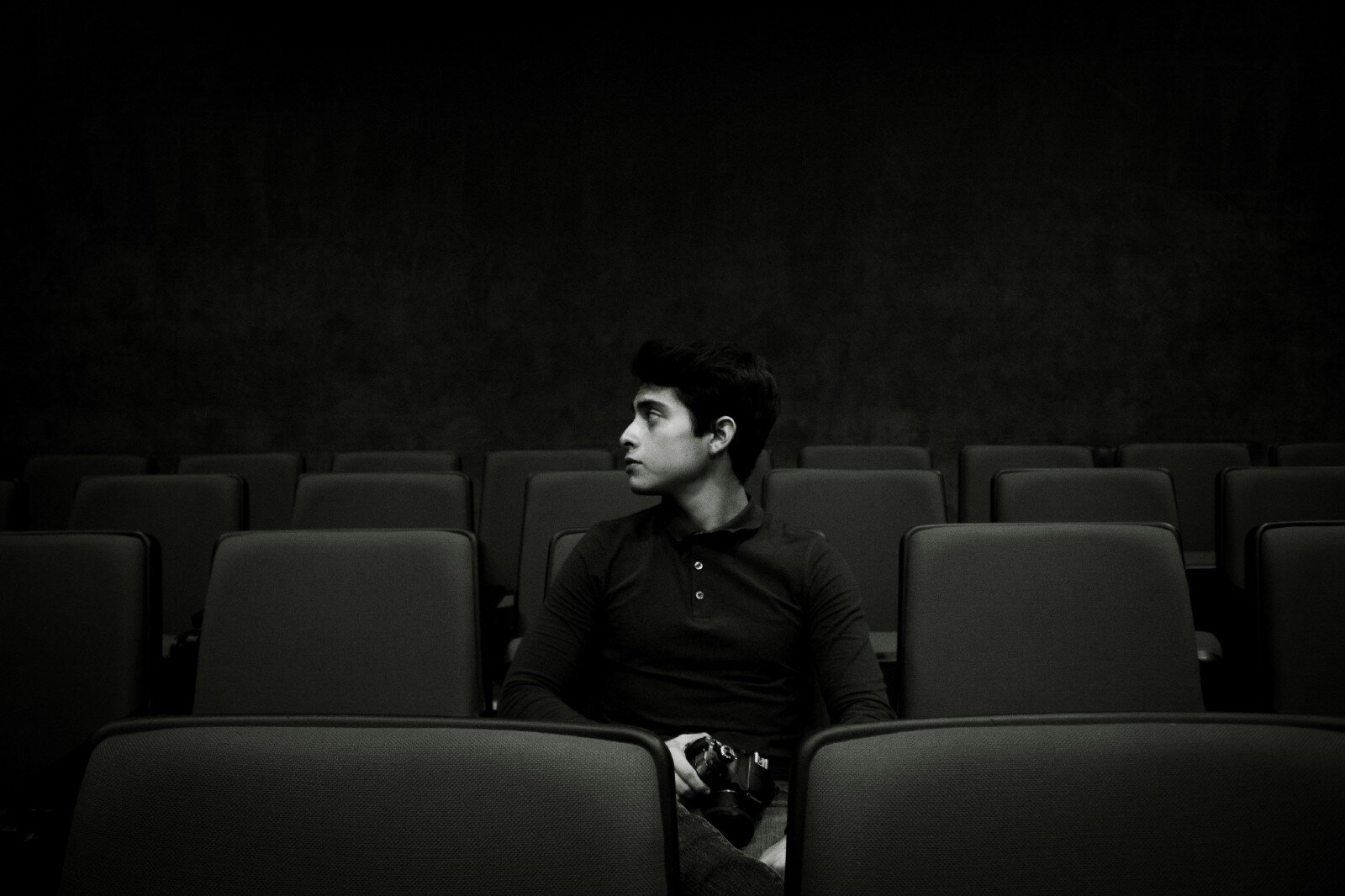Screenwriting Lessons from Edgar Allan Poe
Poe was more than the master of the macabre — here’s what all storytellers should learn from his timeless advice.
Photo by Sergio Ibannez on Unsplash
Quoth the Raven “Nevermore!”
Edgar Allan Poe lived nearly a century before the invention of filmmaking. However, his advice on storytelling is timeless. I’ve long been a Poe fan — I even wrote and directed an award-winning adaptation of the last poem he penned before his untimely death.
While Poe is known for his macabre poetry and gory short stories, he was a writer of much more than that. Poe was also a literary critic and routinely wrote philosophically about the nature of reality and art. Therefore, to bring his expertise from the 19th century to the 21st century, let’s examine his “quoths” to glean all that we can about narrative structure, themes, and worldbuilding as it relates to screenwriting.
Thematic Effect
There’s a reason why Poe is known for his deeply moving poems and shocking short stories — he composed his works this way on purpose:
“I prefer commencing with the consideration of an effect. …I say to myself, in the first place, ‘Of the innumerable effects, or impressions, of which the heart, the intellect, or (more generally) the soul is susceptible, what one shall I, on the present occasion, select?’
Having chosen a novel, first, and secondly a vivid effect, I consider whether it can be best wrought by incident or tone — whether by ordinary incidents and peculiar tone, or the converse, or by peculiarity both of incident and tone — afterward looking about me (or rather within) for such combinations of event, or tone, as shall best aid me in the construction of the effect.”
Photo by Kat Stokes on Unsplash
By “effect,” we take Poe to mean the emotional reaction and associated themes to accompany it. Note that this is a deeper design than merely picking a genre. He chose a specific emotional response he wanted to evoke and used tone, plot, and theme in harmony to achieve this outcome. Be sure to do the same with your scripts, even if you’re a “pantser” and not a “plotter.”
Start with the Ending
Once you’ve chosen an emotional effect and/or theme for your story, it’s time to figure out how to make that happen:
“Nothing is more clear than that every plot, worth the name, must be elaborated to its denouement before anything be attempted with the pen. It is only with the denouement constantly in view that we can give a plot its indispensable air of consequence, or causation, by making the incidents, and especially the tone at all points, tend to the development of the intention.”
Photo by Klim Sergeev on Unsplash
This may sound counter-intuitive to some, but it’s timeless storytelling advice. Story guru John Truby says essentially the same thing in his life-changing book The Anatomy of Story:
“By starting with the frame of the story — self-revelation to weakness, need, and desire — we establish the endpoint of the plot first. Then every step we tale will lead is directly where we want to go.”
Ending & Effect:
Poe provides an example of these concepts in action by explaining the brainstorming and outlining process behind his famed poem “The Raven:”
“I had now gone so far as the conception of a Raven, the bird of ill-omen, monotonously repeating the one word ‘Nevermore’ at the conclusion of each stanza in a poem of melancholy tone, and in length about one hundred lines.
Now, never losing sight of the object — supremeness or perfection at all points, I asked myself — ‘Of all melancholy topics what, according to the universal understanding of mankind, is the most melancholy?’
“Death, was the obvious reply.
“Perceiving the opportunity thus afforded me, or, more strictly, thus forced upon me in the progress of the construction, I first established in my mind the climax or concluding query — that query to which ‘Nevermore’ should be in the last place an answer — that query in reply to which this word ‘Nevermore’ should involve the utmost conceivable amount of sorrow and despair.
“Here then the poem may be said to have had its beginning — at the end where all works of art should begin — for it was here at this point of my pre-considerations that I first put pen to paper.”
Photo by Ray Dauphinais on Unsplash
Poe demonstrates with “The Raven” (a piece that’s not even strictly narrative) that combining an effect and ending to organically create a story is a strong technique you can use whenever you’re searching for your next narrative to dive into.
Artistic Decisions
It’s not enough to start with good intentions about the effect, ending, tone, and the like. It takes deliberate effort throughout the grueling writing process:
“A skillful literary artist has constructed a tale. If wise, he has not fashioned his thoughts to accommodate his incidents….”
Take special note of Poe’s admonition to invent rather than obey external plot points (“incidents”). This brings to mind the paramount lesson I learned years ago about how characters and themes should create your plot rather than the other way around. I’m talking about you, Save the Cat!
Now, Poe, what were you saying?
“If wise, he has not fashioned his thoughts to accommodate his incidents; but having conceived, with deliberate care, a certain unique or single effect to be wrought out, he then invents such incidents — he then combines such events as may best aid him in establishing this preconceived effect. If his very initial sentence tend not to the outbringing of this effect, then he has failed in his first step.”
Failure in the first sentence? Not to fret: that’s what rewriting is for.
Composition as Art
As a learned man, Poe’s work is oft riddled with literary allusions and Latin phrases such as this one:
“Ceteris paribus [other things equal], no poet can afford to dispense with anything that may advance his design.”
Mr. Poe, what do you mean? He expounds upon his design mindset:
“In the whole composition there should be no word written, of which the tendency, direct or indirect, is not to the one pre-established design. And by such means, with such care and skill, a picture is at length painted which leaves in the mind of him who contemplates it with a kindred art, a sense of the fullest satisfaction. The idea of the tale has been presented unblemished [and] undisturbed.”
Just like the admonition to keep the desired effect in mind from the first sentence you type, once you’ve written and re-written your script, go over it with a fine-tooth comb to make sure every single word is perfectly suited to its intended purpose. The script polishing phase is especially important for our visual artform.
This also means making sure your formatting is top-notch. Contrary to popular belief, screenplay format is more than rules — it’s about “painting the picture” with words like Poe mentioned by using grammar and wordcraft with exquisite intentionality to forge the intended effect.
Photo by Amauri Mejía on Unsplash
This is the exact sort of storytelling skills I teach others as they relate to screenwriting. If you are ready to level up your skills and be taken seriously as an emerging screenwriter, get my free training.
Setting Ought to Be Metaphorical
Cinematic storytelling should not aim to recreate real life. Rather, it should be used to create a heightened reality in which the characters’ inner lives are reflected in the physical milieu they inhabit. Even two hundred years ago, Poe knew this to be true and applied it to his own stories. Here, he explains how the setting of “The Raven” is symbolic and not merely for believability or story logic:
“The locale being thus determined, I had now to introduce the bird — and the thought of introducing him through the window was inevitable. The idea of making the lover suppose, in the first instance, that the flapping of the wings of the bird against the shutter, is a “tapping” at the door, originated in a wish to increase, by prolonging, the reader’s curiosity, and in a desire to admit the incidental effect arising from the lover’s throwing open the door, finding all dark, and thence adopting the half-fancy that it was the spirit of his mistress that knocked.
I made the night tempestuous, first to account for the Raven’s seeking admission, and secondly, for the effect of contrast with the (physical) serenity within the chamber.”
Photo by Victor Rodriguez on Unsplash
These two elements of story — the physical and the symbolic — can often feel to struggling storytellers as opposing one another. Poe shows that by careful construction, each should complement the other unobtrusively.
Unified Story Experience
Starting what you finish is good advice not just when you’re slogging through that tough second act. It also applies when reading other scripts or watching other films. According to Poe, being able to absorb a story in one uninterrupted go is the best way to do so:
“It appears evident, then, that there is a distinct limit, as regards length, to all works of literary art — the limit of a single sitting. …If two sittings be required…everything like totality is at once destroyed.”
What does he mean by totality? It’s not like a part of the story is disappearing if we don’t finish it at one time.
Photo by Thought Catalog on Unsplash
Well, to the person experiencing the story, it can feel like that to his or her brain. At least, that’s what Poe thought; however, he applied this logic to poems, arguing against long-form poetry or stories which required multiple sittings to complete. To Poe, short stories (and especially poems) were more about emotion than plot, and thus should be formatted to suit this purpose:
“We allude to the short prose narrative, requiring from a half-hour to one or two hours in its perusal. The ordinary novel is objectionable, from its length. As it cannot be read at one sitting, it deprives itself, of course, of the immense force derivable from totality. Worldly interests intervening during the pauses of perusal, modify, annul, or counteract, in a greater or less degree, the impressions of the book.
But simple cessation in reading would, of itself, be sufficient to destroy the true unity. In the brief tale, however, the author is enabled to carry out the fullness of his intention, be it what it may. During the hour of perusal the soul of the reader is at the writer’s control.
Here the meaning of “totality” becomes clear. Poe argues that a unified story experience is only possible in one continuous period of time, something television shows and movies today aim to achieve. In the world of film adaptation, we may associate novels with movies, but when it comes to crafting a succinct story that can be consumed with one effect in mind, Poe reminds us that poems and short stories are more akin to the rhetorical effect of cinema.
Photo by Anna Raluy on Unsplash
Keep that in mind the next time you sit down to read a screenplay written by one of the greats — if you truly want to experience the story in its totality, you need to do it all at once.
Aim for Originality
While it’s true that there’s nothing new under the sun, there are always new ways to express timeless truth. That’s why Poe wasn’t worried about creativity:
“Keep originality always in view — for he is false to himself who ventures to dispense with so obvious and so easily attainable a source of interest.”
While we might be hard-pressed to compare our meager skills with that of an American legend like Edgar Allan Poe, if he was confident that originality was still possible, then so should we.
Conclusion
So, what can we learn from Poe, though he lived and died long before cinema had been conceived? Lots, actually:
Brainstorm your concepts based on the thematic effect you want to elicit.
Outline with the ending as your starting point.
Your resolution should be designed to dovetail perfectly with your intended effect.
Each word you use should enhance the effect of your story.
Aim for the “undisturbed” polish on your completed scripts.
The milieu is integral to the storytelling process.
Try to read scripts and watch films in one sitting for a unified experience.
Take heart: Originality is still attainable!
Quoth the Raven? “Back to writing, slacker!”
__
Want more scriptwriting knowledge? Take my FREE Screenwriting mini-course: How to Launch Your Screenwriting Career!










